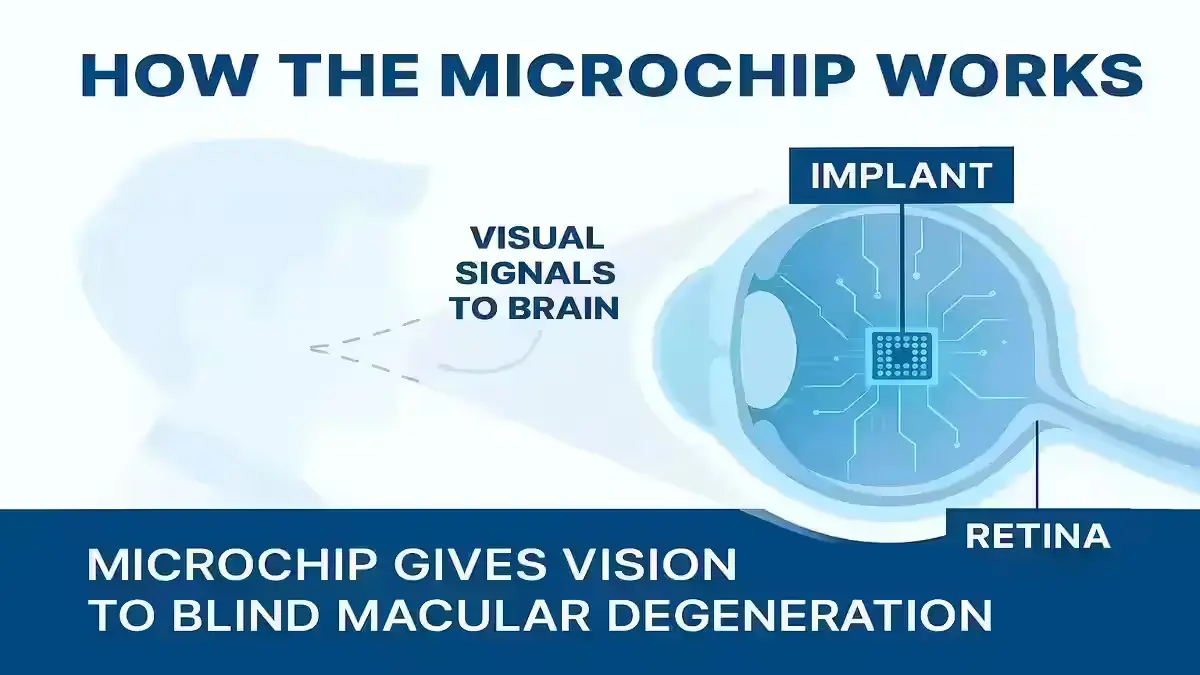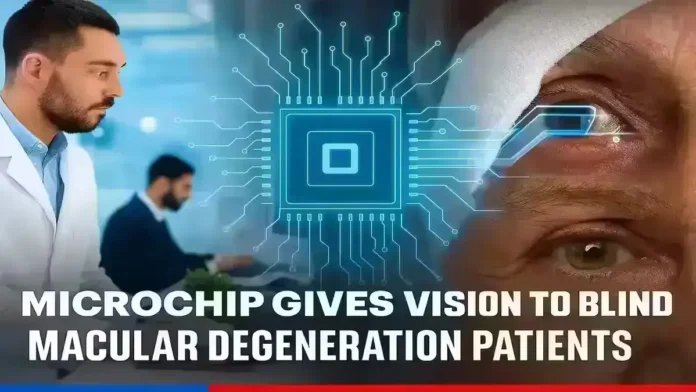Quick Highlights – Microchip Restores Vision
- Technology: Innovative microchip helps blind patients with age-related macular degeneration.
- Benefit: Patients can read clearly again and regain daily independence.
- Trial Results: Early clinical trials show promising outcomes.
- Advice: Patients should consult specialists before opting for the implant.
Microchip Gives Vision to Blind Macular Degeneration Patients
In a remarkable medical breakthrough, a tiny microchip has been successfully used to restore partial vision in patients suffering from age-related macular degeneration. This condition, which affects the central part of the retina, often leads to significant vision loss and difficulty in reading, recognizing faces, or performing everyday tasks.
How the Microchip Works

The microchip is implanted in the retina, where it directly stimulates the remaining retinal cells to transmit visual signals to the brain. This technology enables patients to see outlines, letters, and sometimes even detailed images, allowing them to read clearly again. For macular degeneration patients, this can be life-changing, restoring independence and confidence in daily life.
Advantages of the Microchip
- Restores partial vision to previously blind patients
- Enables reading and recognizing objects
- Improves quality of life and daily functioning
- Minimally invasive surgical procedure with growing safety data
Disadvantages and Considerations
- Not a complete cure – vision may remain limited
- Requires surgical implantation and follow-up care
- May not work for all patients depending on retinal health
- Potential risks include infection or implant malfunction
Health Tips for Patients
Patients considering this microchip should maintain overall eye health with regular checkups. Balanced nutrition, protection from UV light, and avoiding smoking can help preserve remaining vision. Following the specialist’s post-implant guidance is essential for best results.
Expert Advice and Disclaimer

While the microchip provides hope, specialists emphasize that results vary among individuals. It is important for patients to discuss eligibility, risks, and expected outcomes with qualified ophthalmologists. This technology is primarily for patients with severe central vision loss due to age-related macular degeneration.
Final Thoughts
The microchip giving vision to blind macular degeneration patients represents a significant step forward in medical technology. By combining innovation with careful patient selection, it offers an opportunity for many to regain sight and improve their quality of life.
FAQs – Microchip for Macular Degeneration Patients
1. Who can benefit from the microchip?
Patients with severe vision loss due to age-related macular degeneration may benefit, depending on retinal health.
2. Does the microchip restore full vision?
No, it restores partial vision, enough for reading, recognizing objects, and improving daily life.
3. What are the risks?
Risks include infection, surgical complications, and possible implant malfunction.
4. How soon can patients see improvements?
Improvement varies, but many patients notice enhanced vision in weeks to months after implantation.
5. Is this microchip widely available?
It is currently available in clinical trials and specialized ophthalmic centers. Consultation with an eye specialist is necessary.

